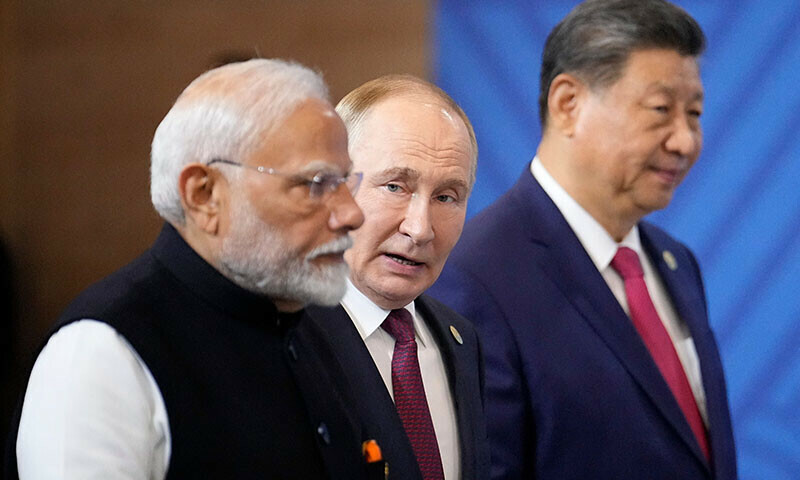Indian Head of the state Narendra Modi and Chinese President Xi Jinping held their first conventional discussions in quite a while on Wednesday, flagging that ties between the Asian monsters harmed by a lethal military conflict in 2020 had started to recuperate.
The Indian government and Chinese state media reported that the two leaders met on the sidelines of the Brics summit in Kazan, Russia, two days after New Delhi announced that it had reached a deal with Beijing to end the four-year military standoff on their disputed Himalayan frontier.
Relations between the world’s two most crowded countries — both atomic powers — have been stressed since a conflict between their soldiers on the generally undemarcated outskirts in the western Himalayas of Ladakh left 20 Indian and four Chinese fighters dead in 2020.
Since then, the neighbors have added tens of thousands of troops and weapons to their military presence along the icy frontier.
Modi and Xi had not held formal two-sided talks since despite the fact that the two of them partook in multilateral occasions. Their most recent summit talks took place in Mamallapuram, an Indian town in the south, in October 2019.
The two talked momentarily uninvolved of the G20 highest point in Bali in November 2022 and traded civilities.
They talked again uninvolved of the Brics culmination in Johannesburg in August 2023 yet wound up delivering various adaptations of the discussion, demonstrating the different sides didn’t really agree.
Xi skirted the G20 highest point facilitated by New Delhi the next month, a choice seen as one more mishap to their relations.
Strategic endeavors picked up speed as of late after unfamiliar clergymen of the two nations met in July and consented to move forward converses with facilitate the boundary pressures.
Wednesday’s talks between the two leaders are anticipated to result in potentially more Chinese investment in India, as India had made improving the wider political and damaged business ties contingent on resolving the border standoff.
Since the Ladakh conflict, New Delhi had practically stopped issuing visas to Chinese nationals, blocked direct flights between the two countries, and increased scrutiny of Chinese investments.
Neither New Delhi nor Beijing — which affirmed the boundary settlement on Tuesday — has shared subtleties of how the stalemate will be settled under the arrangement consented to this week.
Reuters was informed by a source in the Indian military that the agreement will enable both sides to patrol contested frontier points in accordance with a mutually agreed-upon schedule to avoid confrontations.



